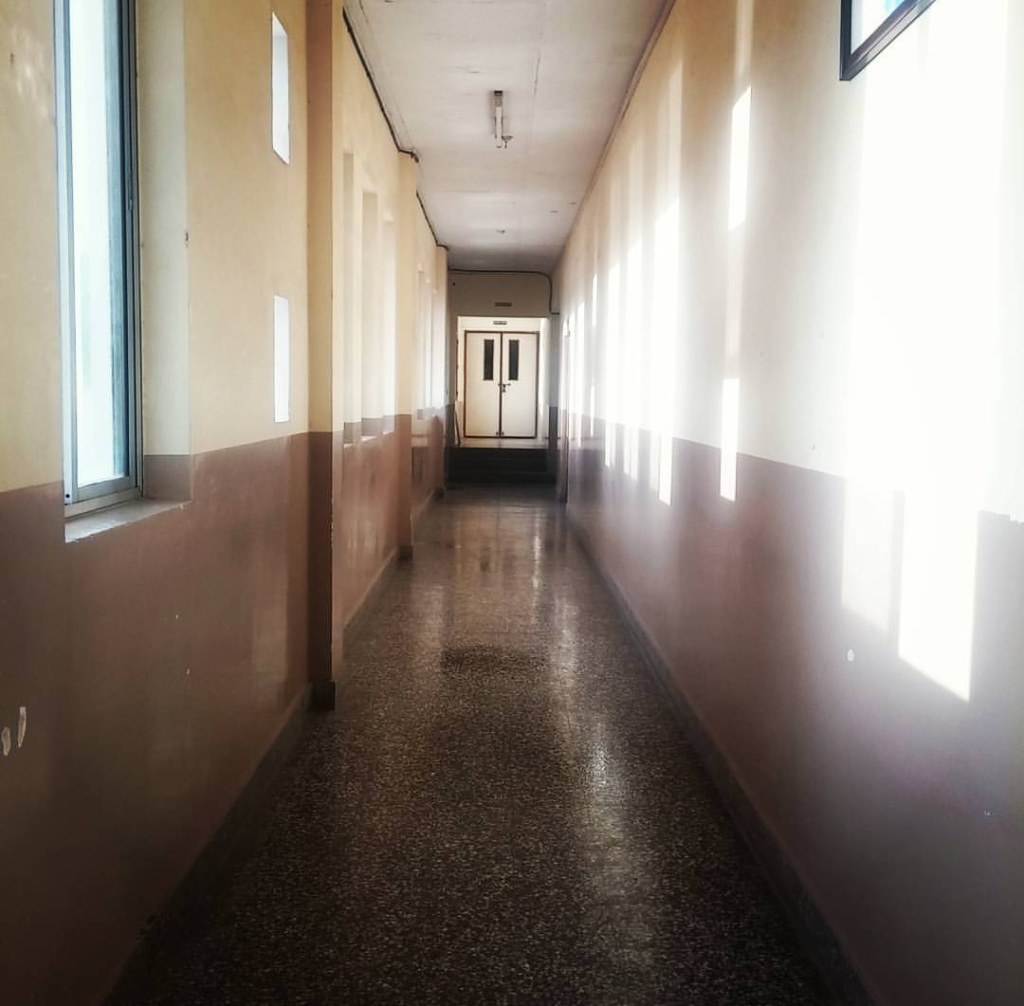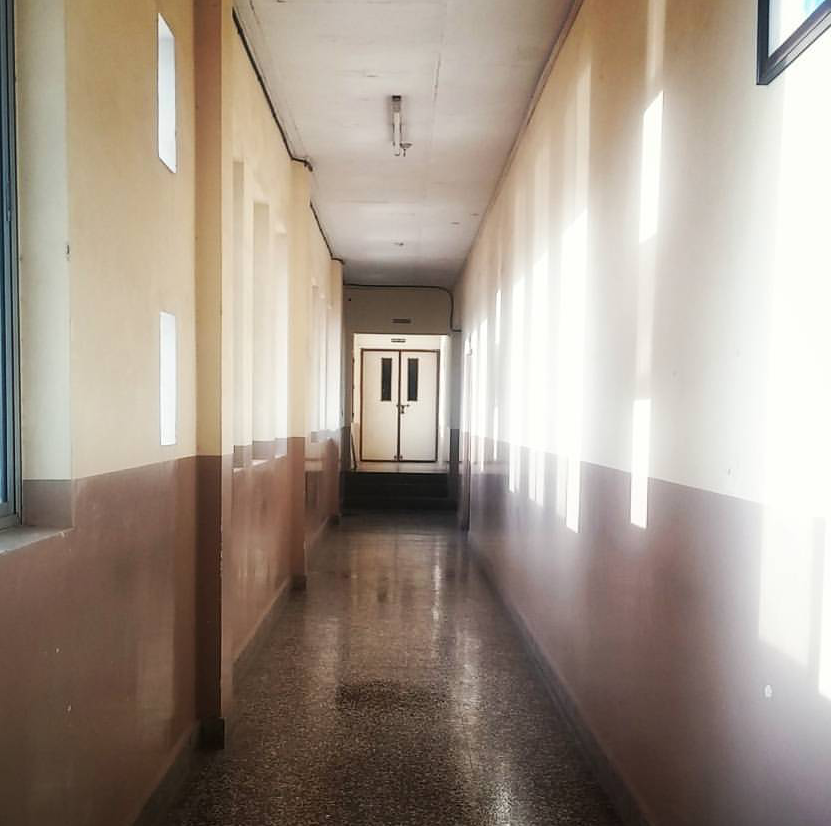If you are an NRI like me, you must read a poem called Refugee Blues, by WH Auden. I lived in a slightly-war-ravaged country in the Middle East, counting days and weeks on one hand, smoke columns and molotovs on the other. The final three years of my life there were singed by many a road fire. Now I didn’t have it as bad as several others. But you know, when you step out the building, and the dustbin a few feet away from your parents’ bedroom window is silently burning, it makes you flinch.
As I took off from Bahrain Airport three years ago, nose pressed against the airplane window, hot tears searing my cheeks, I knew it was never going to be the same again. For I, blinded by the sting of teargas one evening in church, while it scorched my nose and throat, heard my homeland go up in gunshots. I knew that any return back would be depressing and filled with vintage longings.
It would still look pretty; but when a war is happening, there’s always a bit of fear that you try to gulp down and smile over. It doesn’t end there. I came to India. When you’re back in your ‘motherland’ you just don’t know how to live like her children normally do, so much culture shock, public buses, Indian toilets, Kannada, and you feel terribly stupid.
So, here I am, three years later, with a certificate in the closet which says BA PASS. A graduation certificate, just like a flight ticket, is such a brutal oversimplification of human experience. It won’t tell you about the weight I lost trying to get it—15 kilos in the first year only—or about the friends I made, and the few who stayed. It won’t tell you about my kutti-kutti adjustments to a whole new culture, and the little spaces I made in it, which I called home. And it won’t tell you how painful it is at the end to just snap out of a three-year routine and move on.

Image Credits: Lab Key Professor
See that photo? That corridor? That dark doorway? It’s the way to ‘Media Lab’. It’s one of the places I called home. It was called many things—library, silence please, language learning facility, materials production centre—but we, the first batch of English, Journalism and psychology at St Joseph’s College knew it as Media Lab. Initially nothing fancy, just a big empty room with a few plastic chairs, few wooden desks, an old photograph of a priest on the wall, and a few metal lockers.
There were windows all around and at one end, a wooden shelf with models of the human heart and eye. Now they have computers and all, so the lab remains locked most of the time. It’s easy to forget, when you’re so used to sliding open the unlocked latch and just walking in, throwing your bag at one end and parking your butt next to the nearest plug point. So I’d reach the door, groan, walk back to the spot from where the photo was taken and turn left, into the Department of English, and make a key-turning motion to a professor V.
We had most of our journo lab sessions in there, designing pages, editing stories, just being bitches to each other. It’d be a mid or post-class hangout for a private movie, max two people, sharing earphones; or a football match with aluminium/paper improvs; or just extreme sluggishness, where people would pass out like sloths on the wooden benches or a line of chairs. The media lab experience often began much before we entered it. We would smuggle paper cups of coffee from canteen up the five flights of stairs and into the lab. If we got caught, they would ask us ‘What culture is this?’ We wondered if we should say, Coffee-culture.
This place was where I learned to read alone. Satrapi and Hitchens in the lab, Achebe on those three steps, and Eco in the middle of the hallway. There’s plenty of light and breeze and wall to lean back on. Not many people came by, and those who did mostly wanted silence. I was a first-time reader, so the conditions had to be ideal. Hitchens is quite a memory; I once feel asleep with my legs on the chair while reading his book God is Not Great.
The fastest read was Vivek Shanbag’s Ghachar Ghochar—two hours. The most confusing one was Marquez’s Of Love and other Demons. I still don’t know how to read Marquez though. I don’t know if anyone really does. Which page to start from, which way to hold the book and so on. Marquez does this thing of returning to the same scene over and over again, like that dead dog on the tree, and he’s supposed to be a master story teller. But I feel when I get into a Marquez story all the characters start dancing around me, pointing fingers at me and laughing.
The lab key professor once took a candid photo of me reading in the hallway, in which I’m wearing a kurta, looking all serene and intellectual. It surprised me. Because learning to read was a harrowing experience.
I made several visits to my hallway in the past two months. One day luckily, the lab was open—the smaller one; yeah, they partitioned it also—and I managed to get through a few pages of Tuesdays with Morrie. Maybe it was the emotion in the book—lovable old professor with ALS talking about life to his old student—that got me really upset. Those few moments were of extreme consciousness; there were thoughts of leaving, of memorable lectures and jokes, of the weight of sudden responsibility, now that I had a degree.
These were interspersed with moments of hypersensitivity—the shuffle of footsteps, the sound of metal grinding against metal outside, where workers were expanding the building, the birds chirping, my own confused heart thumping fearfully, wanting to break out and bounce away. I don’t deal with anxiety very well. It had been a long time since I felt anxious while reading, but this time I was ready, and just turned up the volume of the voice in my head.
I couldn’t do it as easily as before, because I had no reading life, and no voice. And hell, being the first and therefore experimental batch with an English major, our teachers pushed us to the extremes. The voice slowly, steadily took form, and got character. It would trail or break off at the slightest distraction. Which is why I picked this quiet place to read—never had the word discipline meant so much. I had to train myself to be patient.
I often try racing through sentences, only to find that I haven’t caught the meaning. Sometimes, I skip words. I take mental snapshots of words in a sentence. It takes me a while to comprehend even the simplest of sentences. Some of the first books I read, I don’t remember most of their story. The silence made it harder, because I couldn’t deal with not having distractions around. I could easily read in a short bus or auto ride, but this was something else.
Incidentally, just a few days before this visit to the lab, Morrie told Mitch, “Why are we embarrassed by silence? What comfort do we find in all the noise?”
The lab, the little staircase and that hallway mean so much to me because I spent the majority of those three years there doing the most difficult thing I have ever done—getting used to reading. And realisation was catching up with me—I had to leave this place behind too, and move on. Damn boy, just when you were getting a hang of it. People don’t understand how important one’s reading spot is—they just meh it off. Now that college had ended, I needed to find a new reading haunt. My house was the only option. Still getting used to it.
In the final month of college I read The Reader by Bernhard Schlink and got upset. I finished it the night of the last exam. It was only then that I let myself think: College done. No clue. Haven’t read enough. Entrance exams. Unqualified for adulthood. FML. You know what, when you’re done reading a sad but beautiful book, don’t let yourself think about sad things.
Just keep thinking about the book or go take a walk, and observe things around you. Otherwise, you will feel bad the entire night, you’ll cry yourself to sleep and wake up with a headache. Sometimes you just can’t help it though—I was reading the last few pages of Tuesdays with Morrie, when a friend texted me saying that Hyderabad Central University’s entrance results were out. I did not get in. I just shut down the laptop and went back to Morrie. He died shortly after. There were tears, and tears within tears.
There are two harrowing facts I need to reconcile with: college is over; I don’t have a proper plan, or options. Both of them take turns tormenting. I would have read through it, but I have nowhere to read. As Schlink says, “Now to escape involves not just running away, but arriving somewhere.”
Now, when I go back to the department, it isn’t the same. I feel the distance in so many ways; There was a time when I was confident that the bearded, omniscient professor who designed my course could answer anything I asked; but I know, I can’t ask him if I’ll get into a good college. I can’t ask any of them this question, which bothers me the most. All they can do is wait and watch with me. This was never a relationship of silence—there would always be conversation, questions, answers, learning— never an unnerving, awkward silence.
The bitching topics too have changed. It’s pretty reduced on my side, as I’m in contact with a very few people these days, mostly close friends. We just try to have a good time, stuffing all the fun we can into a sleepover. Most of my closest friends have at least the next two years figured out. I am still waiting and trying to read my Madame Bovary on another weird monsoon evening, when the clouds just stay for a while, and go, as if their sole purpose was not to rain but to stop by and discuss where my life is going. In the first semester, my dear bearded professor, who hates self-help books, had laughed at me for liking The Alchemist. Then he asked me to look for problems with it. Here’s one: the author had said, “When you want something, all the universe conspires in helping you to achieve it”. Well, he lied.
Latest posts by Timothy Jairaj (see all)
- When a Lab-Rat tried to Read - 14th July 2016
- Stories of Worlds and a Rose’s Name - 18th August 2015
- My First Facial - 21st July 2015






Ranjini 14th July 2016
Nostalgic and connects on (on or at? Debated that for a while) so many levels! Brilliant! Thank you.
The Open Dosa Team 14th July 2016
Glad to Hear it Ranjini! Be sure to check out our other content.
Roshan 14th July 2016
Wow Timothy and I hope the reading haunt finds you soon. I enjoyed this read, thank you.
Adarsh Ciril (@adarshciril) 26th July 2016
Now every time I be there, I’d probably see a ghost of Samwell ‘Timothy’ Tarly up there in the corridor 😉
but I still think Paulo Coelho was right. May be we just don’t know what we truly wants.., yet!
I don’t.
But really enjoyed reading this. and good luck senior.
Anna 8th August 2016
That was a beautiful read. One of those simply beautiful reads. Wow.